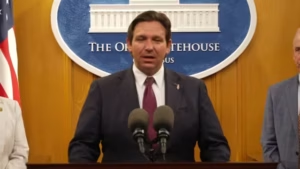#### A recent monumental verdict against Greenpeace in a defamation case has ignited concerns within the activist community and raised critical questions about the implications for free speech in the nonprofit sector.
### Greenpeace's $670 Million Verdict Stuns Activist Community

### Greenpeace's $670 Million Verdict Stuns Activist Community
#### Landmark defamation case sparks fears over free speech ramifications for nonprofits.
In a groundbreaking legal battle, the environmental advocacy group Greenpeace faced a staggering nearly $670 million verdict this month after a jury found the organization liable for defamation against Energy Transfer, the owner of the contested Dakota Access Pipeline. The ruling awarded a quarter-billion dollars for alleged defamation rather than the demonstrations themselves, shocking many in the activist space.
Legal experts and nonprofit advocates have expressed profound concern regarding the verdict's potential repercussions on free speech rights. “The implications of this judgment reverberate well beyond Greenpeace—any activist organization that engages in political protest could feel the chilling effects,” warned David D. Cole, a law professor at Georgetown University and former legal director of the ACLU.
Energy Transfer's lawsuit, originally filed in 2019, contended that Greenpeace had orchestrated a campaign designed to undermine the company's financial stability and disrupt the pipeline's construction process. The legal claims were bolstered by assertions that Greenpeace misrepresented the company’s actions, such as stating it had desecrated “at least 380 sacred and cultural sites” during its operations.
In response, Greenpeace has labeled the case as an attempt to silence dissenters. “This case should serve as a wake-up call to everyone, irrespective of their political views,” stated Sushma Raman, the interim executive director of Greenpeace USA, highlighting concerns about the future of First Amendment rights.
The jury's decision has intensified fears among various advocacy groups, with many now contemplating the potential risks of engaging in public discourse and protests. The outcome of the appeal is anticipated to draw considerable public attention, as it may set a significant precedent for the intersection of activism and free speech in the United States.
Legal experts and nonprofit advocates have expressed profound concern regarding the verdict's potential repercussions on free speech rights. “The implications of this judgment reverberate well beyond Greenpeace—any activist organization that engages in political protest could feel the chilling effects,” warned David D. Cole, a law professor at Georgetown University and former legal director of the ACLU.
Energy Transfer's lawsuit, originally filed in 2019, contended that Greenpeace had orchestrated a campaign designed to undermine the company's financial stability and disrupt the pipeline's construction process. The legal claims were bolstered by assertions that Greenpeace misrepresented the company’s actions, such as stating it had desecrated “at least 380 sacred and cultural sites” during its operations.
In response, Greenpeace has labeled the case as an attempt to silence dissenters. “This case should serve as a wake-up call to everyone, irrespective of their political views,” stated Sushma Raman, the interim executive director of Greenpeace USA, highlighting concerns about the future of First Amendment rights.
The jury's decision has intensified fears among various advocacy groups, with many now contemplating the potential risks of engaging in public discourse and protests. The outcome of the appeal is anticipated to draw considerable public attention, as it may set a significant precedent for the intersection of activism and free speech in the United States.





















